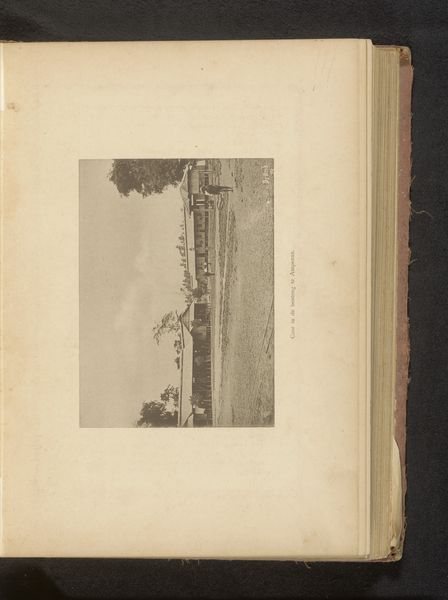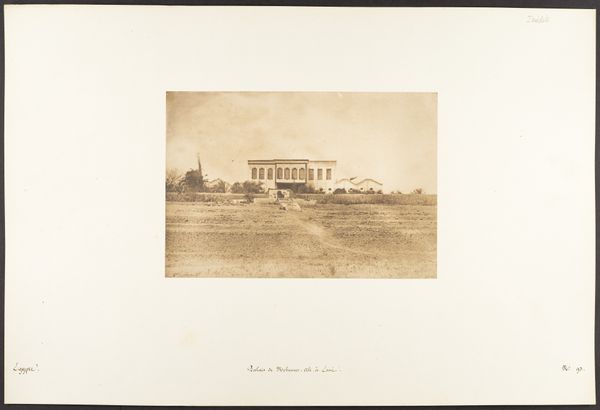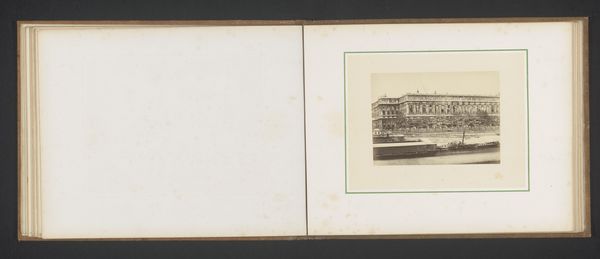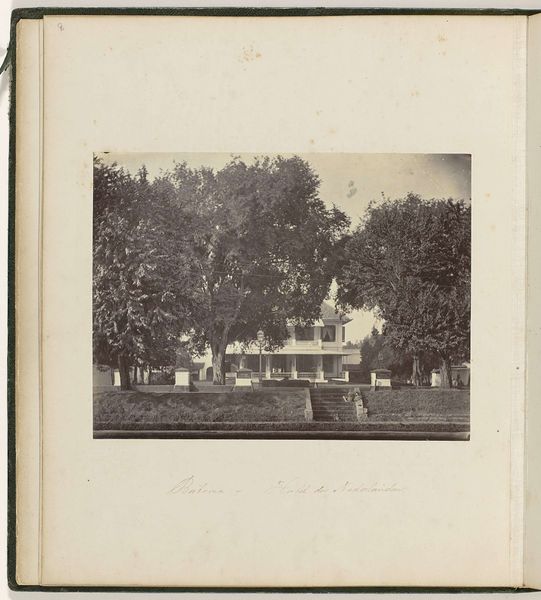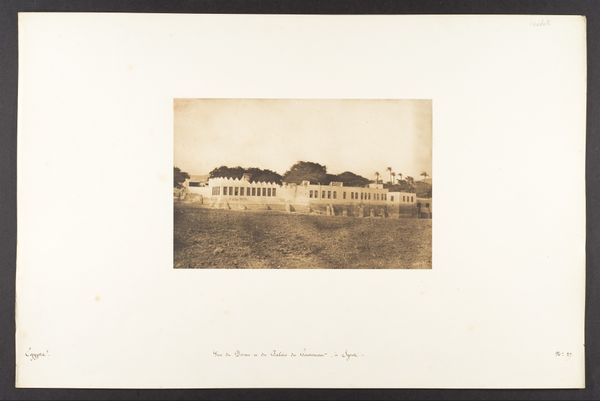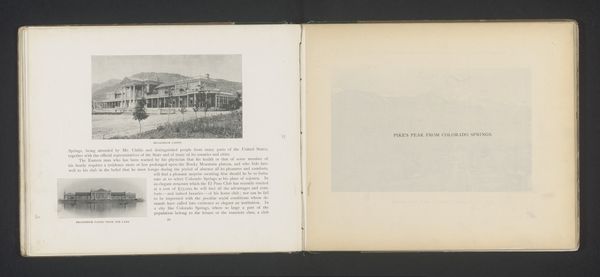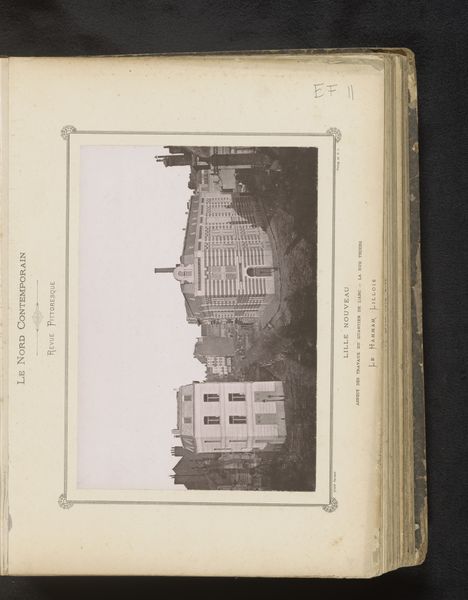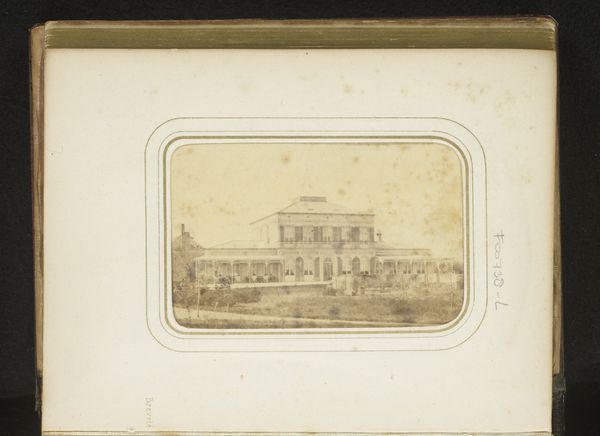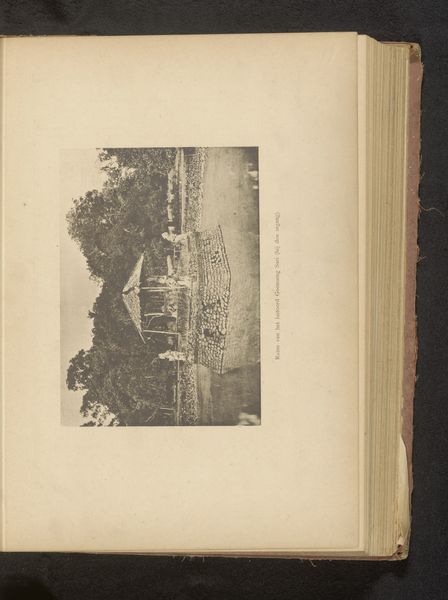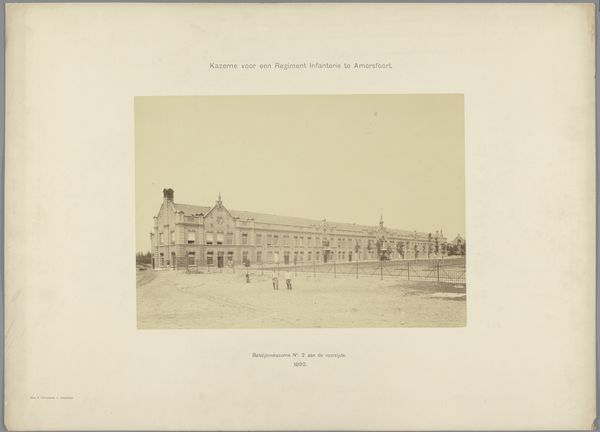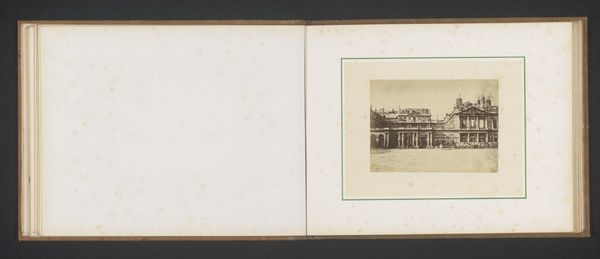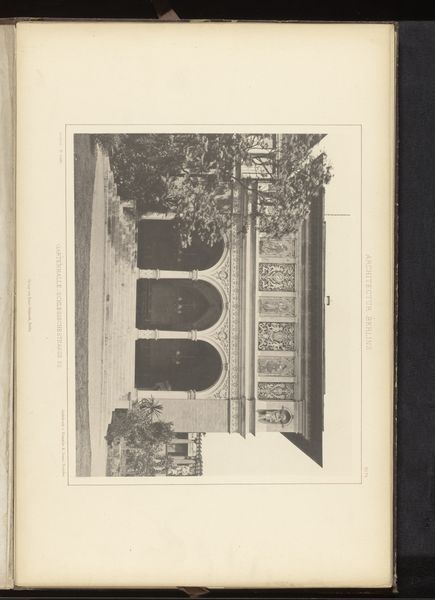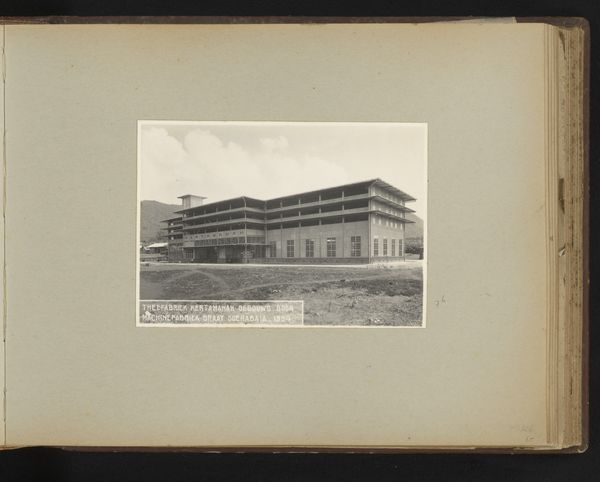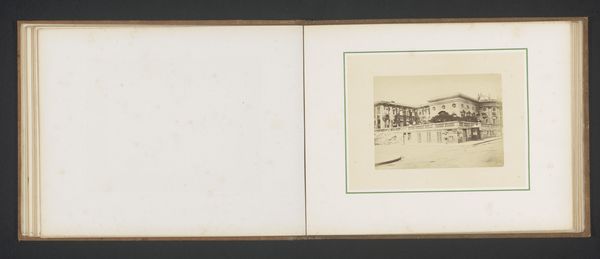
photography, albumen-print
#
ink paper printed
#
landscape
#
photography
#
cityscape
#
albumen-print
#
realism
Dimensions: height 130 mm, width 214 mm
Copyright: Rijks Museum: Open Domain
This view of the Crystal Palace in London was captured by C.M. Ferrier and F. von Martens, using photography, a relatively new medium at the time. Photography in the 19th century was more than just pointing and shooting. It required a deep understanding of chemistry, optics, and light. The image here is likely a salted paper print, an early photographic process. The inherent qualities of the photographic materials, especially the paper, influence the tones and textures we see. It was a labour-intensive process, involving coating paper with light-sensitive chemicals, carefully exposing it to light, and then developing the image. The Crystal Palace itself was a monument to industrial production, designed to showcase the achievements of the Industrial Revolution. The act of photographing it highlights the shift from handcrafted objects to mass-produced items, mirroring the transition occurring in art and design during this period. Photography democratized image-making, challenging the established hierarchies of art. It invited new ways of seeing and representing the world, and in this case, immortalizing a structure that symbolized a new era of material culture.
Comments
No comments
Be the first to comment and join the conversation on the ultimate creative platform.
